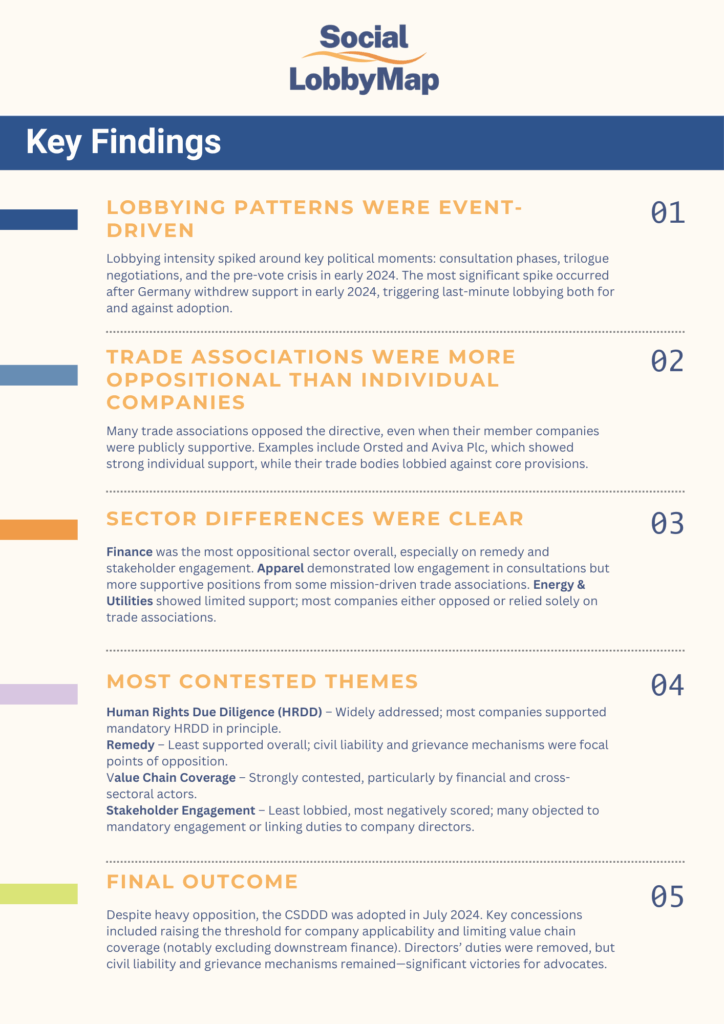Latest Social LobbyMap CSDDD research demonstrate how lobbying by major corporations and industry groups contributed to the weakening of the European Union’s Corporate Sustainability Due Diligence Directive (CSDDD).
Once perceived as landmark legislation to hold companies to account for human rights abuses and environmental harm across supply chains, the CSDDD has been adapted to change the parameters organisations need to adhere to. Some elements are very much aligned with the directive’s original goals, while some feel more removed from its original aims The report sheds light on the often behind-the-scenes corporate lobbying on human rights tactics which shaped the legislation, demonstrating a need for greater transparency, accountability and the future of corporate responsibility in Europe.
Key findings from the report reveal patterns around lobbying activity, the disparity of opposition between trade associations and the individual companies they represent, the range of sector differences and the mostly contested themes.

Lobbying patterns were very much event driven, with key political events leading to spikes in activity. In early 2024, Germany withdrew their support of the CSDDD. This led to an increase in lobbying activity both in support of and in opposition to the adoption of the directive.
The research also revealed a stark disparity between the positions of individual companies and the trade associations representing them. Individual organisations were found to show strong support but this support was not reflected in the opposition of their trade associations.
There was also a difference between the approaches to human rights legislation across sectors. Finance was the most oppositional sector overall, while apparel demonstrated low engagement in consultation but supportive positions through mission-driven trade associations. Energy and utilities showed limited support for the directive with most companies either opposed to the legislation, or relying solely on trade associations to demonstrate their position.
The most contested themes were around remedy and value chain coverage.
Despite heavy opposition, the CSDDD was adopted in July 2024 with a range of concessions. Amendments included raising the threshold of companies to whom the legislation would apply as well as limiting the parts of the value chain the legislation would apply to. Directors’ duties were also removed but, despite strong opposition, civil liability and grievance mechanisms remained in the legislation.
Social LobbyMap analysed the activities of 43 companies and 45 trade associations across multiple industries, focusing on sectors with significant policy influence. This includes:
- 26 companies in finance and finance sector related business services
- 9 companies in energy production and electric utilities
- 8 companies in apparel
- 45 trade associations, including cross-sectoral lobbying groups
As corporate lobbying activities evolve, our coverage will expand to include more industries and stakeholders.
Eager to know more about corporate influence on human rights legislations? Explore the Social LobbyMap data and tools.
